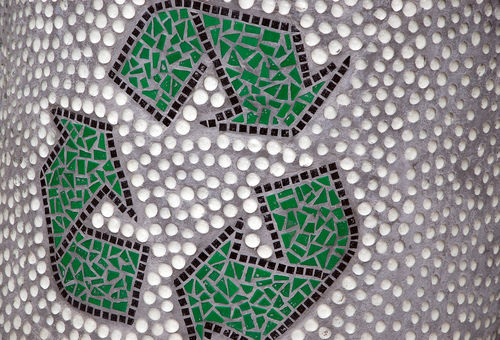
Photo credit: Steve Snodgrass
Making sustainable choices in our daily lives is a simple way to reduce our impact on the environment. These choices can be quite personal – bringing your own bag to the grocery store, buying local produce, and choosing to walk rather than drive somewhere. Day by day, sustainable actions add up, helping curb the carbon emissions that change our climate.
Sustainable choices can also be made on a larger scale, resulting in larger net positives for carbon emissions and a more substantial return on investment. Businesses across the globe are integrating sustainability into their business model and daily operations, and seeing benefits to their bottom line. (Not to mention brand awareness and loyalty, but that's another blog post!)
If you’re wondering how your business can embrace sustainability, we’ve compiled a list of five quick and easy things you should do right now to reduce your environmental impact.
1. Set double-sided printing as your default. The average U.S. office worker prints 10,000 pages per year, and 45 percent of that paper ends up in the trash by the end of the day. By making double-sided printing your default, you can cut your personal paper waste in half. (Source: The Paperless Project)
2. Put your lights on motion sensors. It’s easy to install motion sensors to automatically turn lights on and off as needed, a move that can cut electricity waste by 30 percent. If your office has manual light switches, remember to turn lights off when you leave the room. (Source: U.S. Department of Energy)
3. Switch out light bulbs for LED options. Swapping out old fluorescent or incandescent light bulbs for LED lights reduces energy use by 75 percent (and as a bonus, can save you up to 85 percent of your lighting energy cost). (Source: U.S. Department of Energy)
4. Adjust your office thermostat. Everyone’s comfortable at a different temperature, so it can be tricky to balance thermostat preferences. But finding a happy balance can result in energy savings. In four-season climates, the general rule of thumb is 78 degrees or higher in the summer and 68 degrees or lower in the winter. (Source: Reach the Future)
5. Refresh on the recycling basics in your area. It’s a good idea to make sure your staff knows what can and cannot be recycled. For example, in some areas shredded paper cannot be recycled, although it can be composted. Each area will have different recycling guidelines, so be sure to check with your business’ waste hauler.
We’ve been making these changes in the Lilja office, including setting our thermostats to warmer temperatures this summer and throwing the windows open for some fresh air whenever the weather allows. We’re proud to be reducing our carbon footprint and our impact on climate change – one step at a time. Let’s take these steps together.
